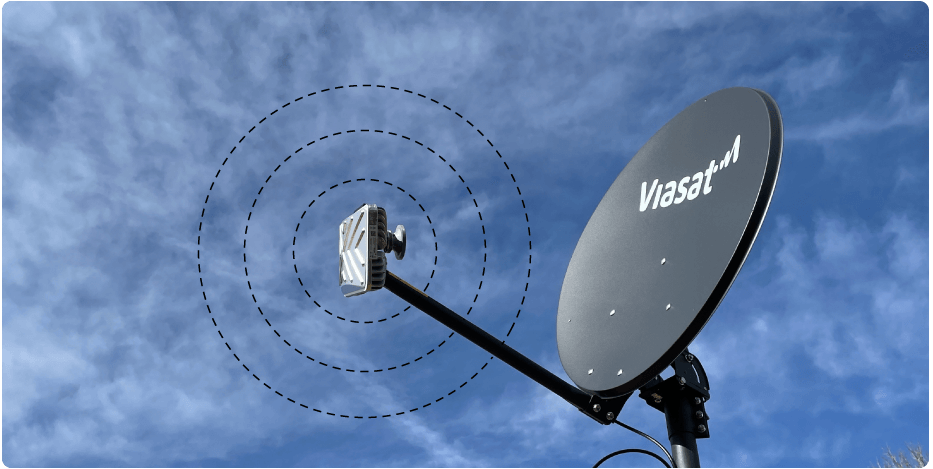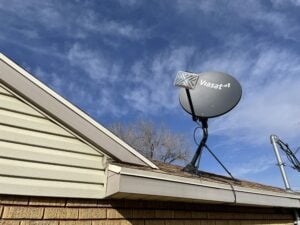I got firsthand experience with Viasat's performance, and, contrary to other customers' frustrations, I was surprised by how decent my speeds were. My own purchase speed was reportedly up to 100Mbps, but my actual speed, according to multiple speed tests, ranged from 40Mbps to 50Mbps. I could stream live TV and movies, browse the web, and hold video calls with coworkers. However, high latency was noticeable, as it took a few more seconds than usual for a web page to load or for a Netflix movie to start.
Customer support left a positive impression on me. Both my purchase, installation, and subsequent support calls were responsive and painless. Getting signed up was quick, and my installation took place just a few days later, at a time that was most convenient for me. My installer was knowledgeable, polite, and willing to answer all my questions. At a certain point, I decided to put my service in “hibernation mode,” which temporarily deactivates the service without canceling your account—useful for customers who only use it part-time of the year. This process was quick to initiate, and the customer rep I spoke with answered my questions.
Unfortunately, signal interruptions are also common with satellite internet, so if my connection were suddenly interrupted, it would take several seconds for my movie to buffer and resume. These interruptions weren't that long, but they were more frequent and somewhat annoying during peak hours in the evening or when I connect multiple devices.
Viasat outshines its competitors in unlimited data. With its updated Unleashed plan, Viasat is the only satellite internet provider that offers its fastest speeds with unlimited high-speed data. While Viasat's Unleashed data plan is virtually limitless, it warns customers that if they exceed the monthly standard data usage limit, their service may be slowed during peak hours, though this is rare.
Viasat will be better suited for heavy-data households, but it's tough to say how consistent the speeds will be, given that every customer will have free rein with unlimited high-speed data.
Viasat's Unleashed plan offers unlimited data, ideal for customers who stream a lot. Streaming can drain allotted high-speed data, but since Viasat virtually eliminated its cap, you shouldn't have to worry about running out even when you watch HD or 4K TV.
Viasat is a satellite internet service with the lowest upfront costs, letting you try its service for little to no risk thanks to its no-contract plan. Its main internet plan starts at $69.99 per month, depending on your location. Also, be aware that you'll need to pay a monthly equipment lease of $15.
If you use a lot of data (e.g., streaming daily, working from home through the web, frequently videoconferencing, and sharing large data files), the promise of unlimited high-speed data should appeal to you. This is especially true compared to Hughesnet, which caps customers at 200GB per month.
Viasat also joins Starlink in ditching a mandatory contract, letting you pay month-to-month and end service whenever you want. Hughesnet is the only primary satellite internet provider in the U.S. that requires a two-year commitment and will charge an early termination fee.





